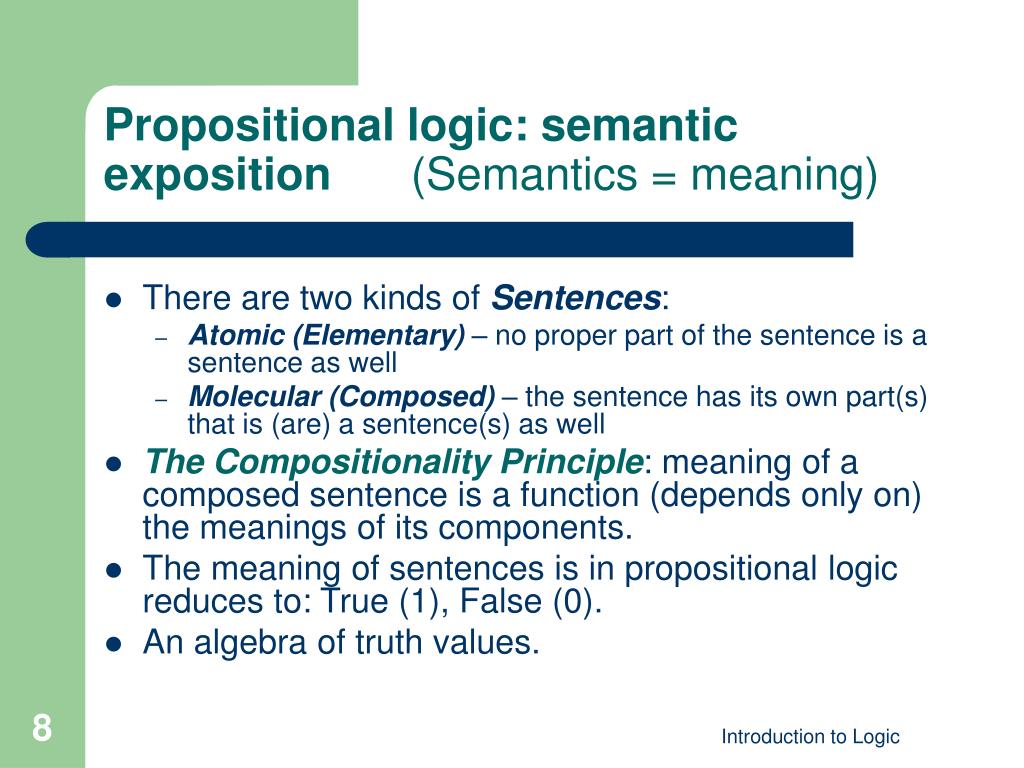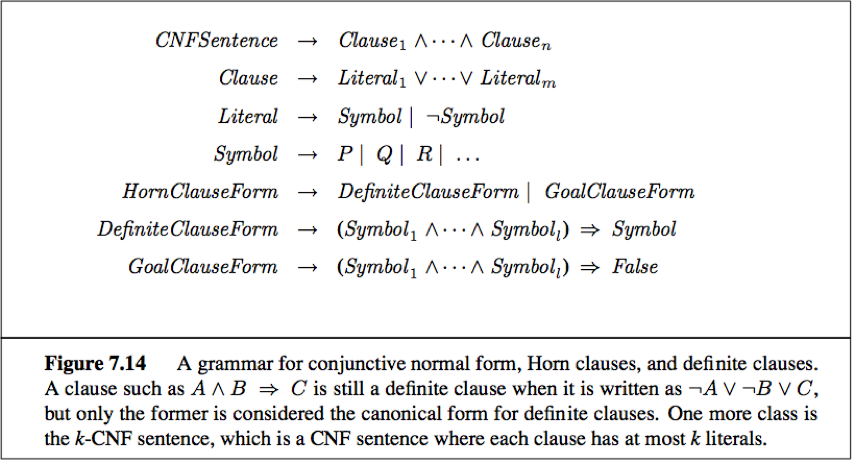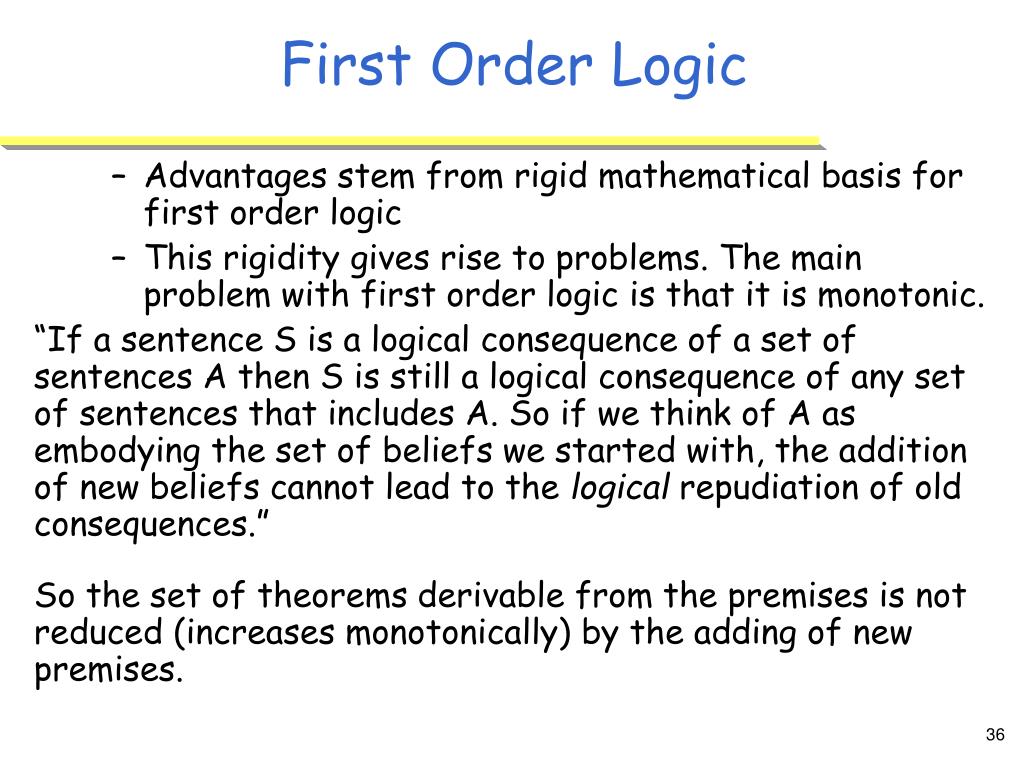
Formal languages are characterized by their precision and simplicity. The inference from the English sentences "Al lit a cigarette" and "Bill stormed out of the room" to the sentence "Al lit a cigarette and Bill stormed out of the room", on the other hand, belongs to informal logic.

Premises and conclusions are usually understood either as sentences or as propositions and are characterized by their internal structure complex propositions are made up of simpler propositions linked to each other by propositional connectives like ∧ " is studied by formal logic. Logic studies arguments, which consist of a set of premises together with a conclusion. Logic plays a central role in multiple fields, such as philosophy, mathematics, computer science, and linguistics. While there is no general agreement on how formal and informal logic are to be distinguished, one prominent approach associates their difference with whether the studied arguments are expressed in formal or informal languages. Formal logic contrasts with informal logic, which is associated with informal fallacies, critical thinking, and argumentation theory. When used as a countable noun, the term "a logic" refers to a logical formal system that articulates a proof system.


It is a formal science investigating how conclusions follow from premises in a topic-neutral way. Formal logic is the science of deductively valid inferences or of logical truths. It includes both formal and informal logic.


 0 kommentar(er)
0 kommentar(er)
